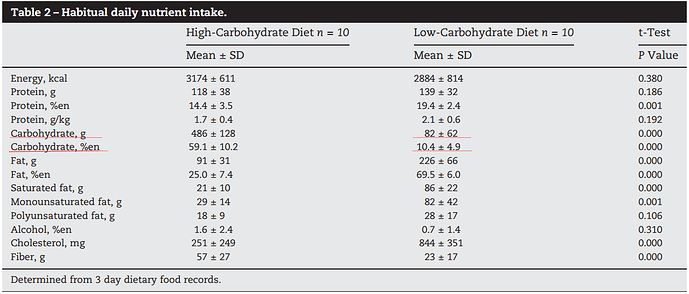@Mavro posted this link in another topic. I think it’s a very important paper so created this topic to preserve it for posterity. 
If you think top athletes require carbs/glucose, please read the entire study before posting. Thanks.
Peak fat oxidation was 2.3-fold higher in the LC group (1.54 ± 0.18 vs 0.67 ± 0.14 g/min; P = 0.000 ) and it occurred at a higher percentage of VO2max (70.3 ± 6.3 vs 54.9 ± 7.8%; P = 0.000 ). Mean fat oxidation during submaximal exercise was 59% higher in the LC group (1.21 ± 0.02 vs 0.76 ± 0.11 g/min; P = 0.000 ) corresponding to a greater relative contribution of fat (88 ± 2 vs 56 ± 8%; P = 0.000 ). Despite these marked differences in fuel use between LC and HC athletes, there were no significant differences in resting muscle glycogen and the level of depletion after 180 min of running (− 64% from pre-exercise) and 120 min of recovery (− 36% from pre-exercise).

